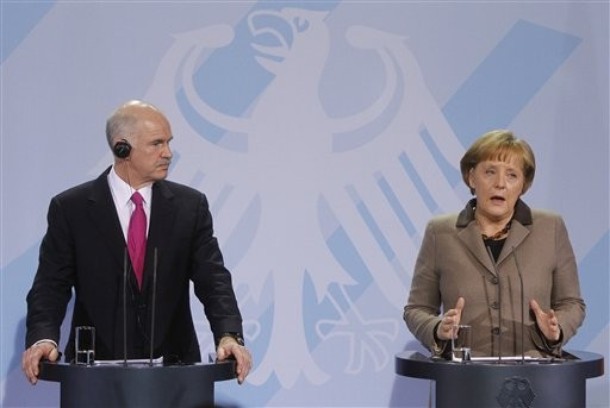
The Peterson Institute's Anders Aslund says the failure of the Eurozone to come to Greece's rescue shouldn't sound the death knell for European economic integration:
I do not think that the idea of a common European fiscal regime has failed. On the contrary, the recent circus shows how badly needed it is. The Scandinavian countries are doing fine since they by and large stick to the Maastricht criteria. The recent debacle should be a good reason for us Europeans to tighten and straighten our thinking. Few things are as good for progress as a total and complete humiliationâ??which this is.
I'm not so sure. A new FT/Harris Poll shows declining support for the Eurozone:
The latest FT/Harris poll showed 61 per cent of Germans opposed the idea of their government helping Greece cope with its budget deficit, with just 20 per cent supportive. That compared with 56 per cent opposed to helping and 21 per cent in favour in the UK. Support for Greece was noticeably higher in Spain and Italy, where 45 per cent and 40 per cent were in favour.German resistance was especially high towards the suggestion that their government should guarantee the debts of another European Union member, which was rejected by 76 per cent of those polled. UK and French opposition to the idea was roughly equal, at about 60 per cent, but Italians and the Spanish were less hostile.
EU leaders are likely to be horrified at the level of support for the idea of breaking up the eurozone - at least temporarily. Asked whether Greece should be asked to leave the eurozone while it sorts out its finances, 32 per cent of Germans agreed. That compared with 27 per cent in the UK, 23 per cent in Spain, 20 per cent in Italy and just 19 per cent in France.
Greece's woes may also have fuelled long-running German scepticism about the benefits brought by eurozone membership by reawaking fears that the euro will not prove as stable as the postwar D-mark they surrendered in 1999.
Some 40 per cent of Germans thought they would be better off outside the eurozone, compared with 30 per cent who thought they would be worse off. In France, Spain and Italy, a larger proportion thought life outside the eurozone would be tougher than remaining inside.
What does the in-fighting among European powers tell us about the EU being a harbinger of a "post national" future? Doesn't seem too imminent now that the chips are down.
(AP Photo)











